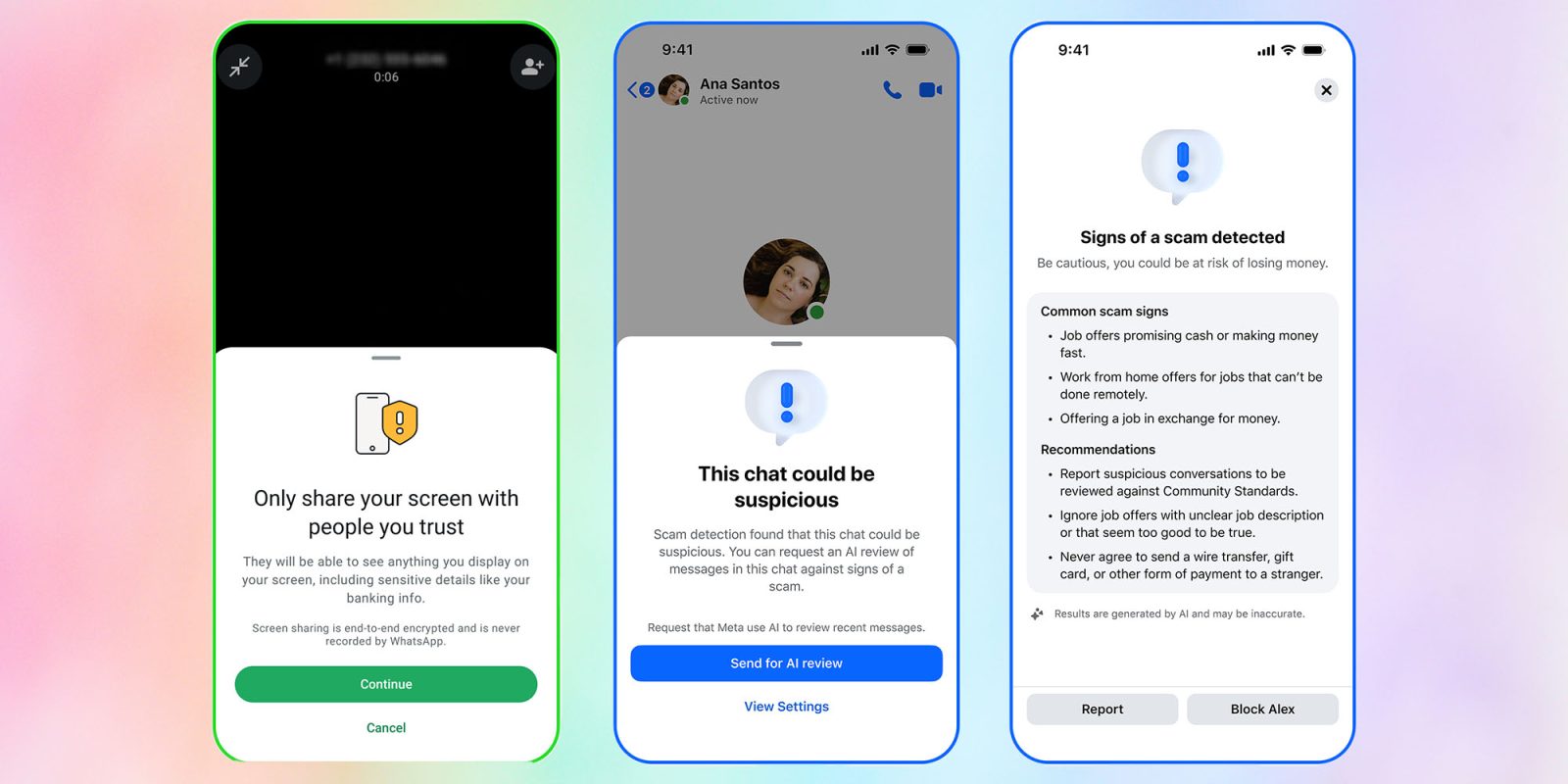In response to a surge in scams involving screen-sharing, WhatsApp has implemented new measures to protect users from fraudulent activities. Scammers have been impersonating customer service representatives to deceive individuals into sharing their screens during video calls, thereby gaining access to sensitive information such as bank account details and verification codes.
Understanding the Scam Tactics
These fraudsters often create fake online profiles and Facebook pages, posing as support agents for reputable organizations like banks and airlines. They monitor official brand accounts to identify customers reporting issues and then reach out, claiming to offer assistance. Once trust is established, they request the victim to share their screen while logging into their accounts. Although they may not directly obtain passwords, they can capture usernames and other critical information necessary to initiate password reset requests. By observing the screen, they can intercept verification codes sent to the victim, facilitating unauthorized access to accounts.
WhatsApp’s Proactive Measures
To combat this deceptive practice, Meta, WhatsApp’s parent company, has introduced a feature that alerts users when they attempt to share their screen with an unknown contact during a video call. This warning aims to provide users with the context needed to recognize and avoid potential scams. Meta emphasizes the importance of this tool in empowering users to make informed decisions and protect their personal information.
Enhancements in Facebook Messenger
In addition to WhatsApp’s new feature, Meta is enhancing Facebook Messenger’s capabilities to detect and warn users about potential scams. The platform is testing advanced scam detection in chats, which involves analyzing messages from new contacts for signs of fraudulent activity, such as unsolicited job offers. If a message is flagged as potentially deceptive, users will receive a warning and the option to submit recent chat messages for AI-driven scam review. Upon detection of a scam, users will be provided with information on common scams and suggested actions, including blocking or reporting the suspicious account.
Guidelines to Avoid Falling Victim to Scams
Meta underscores the importance of vigilance, especially among seniors who are often disproportionately affected by internet crimes. The company offers the following recommendations to help users safeguard themselves:
– Be Cautious with Unsolicited Communications: Avoid sharing personal or financial information, such as Social Security numbers or account details, in response to unexpected calls, emails, or texts. Legitimate organizations and government agencies will not request this information without prior engagement.
– Pause and Consult Trusted Individuals: Scammers frequently create a sense of urgency or secrecy. If pressured to act quickly or keep information confidential, consider it a red flag. Take a moment to consult with someone you trust before proceeding.
– Utilize Official Customer Service Channels: When seeking assistance, always contact the company’s official hotline or visit their website for accurate contact information. Avoid clicking on links in unsolicited emails or texts, and refrain from posting complaints on public forums, as scammers often exploit these avenues.
The Broader Context of Digital Security
The introduction of these features by Meta is part of a broader effort to enhance digital security across its platforms. In August 2025, Meta introduced tools to help WhatsApp users identify scam messages, including safety overviews for group messaging and alerts when initiating chats with unknown contacts. These initiatives reflect Meta’s commitment to providing a safer communication environment for its users.
Conclusion
As digital communication becomes increasingly integral to daily life, the importance of security measures cannot be overstated. WhatsApp’s new warning system serves as a crucial tool in the fight against screen-sharing scams, empowering users to protect their sensitive information. By staying informed and cautious, individuals can significantly reduce their risk of falling victim to such fraudulent schemes.



